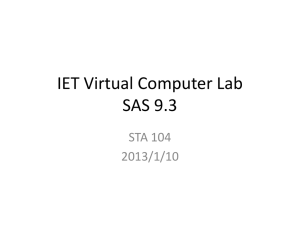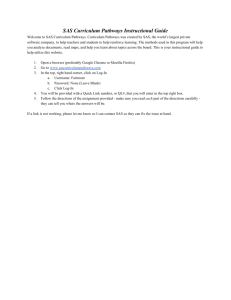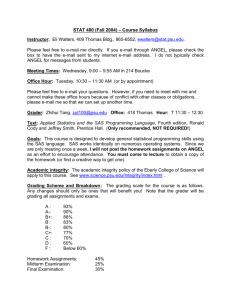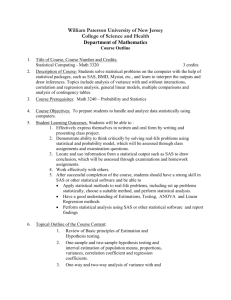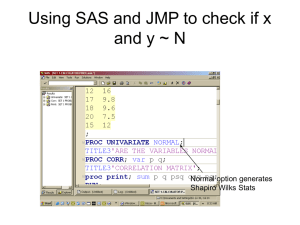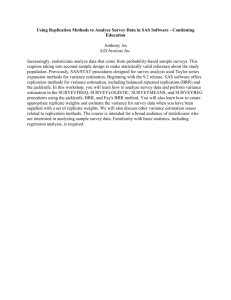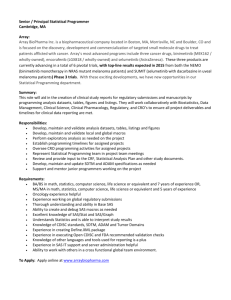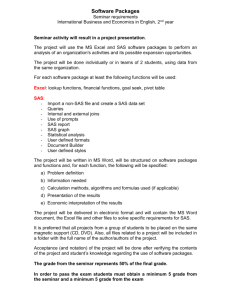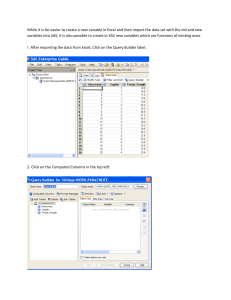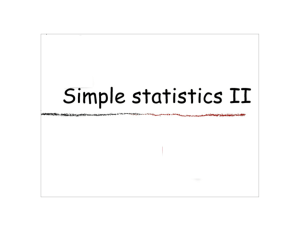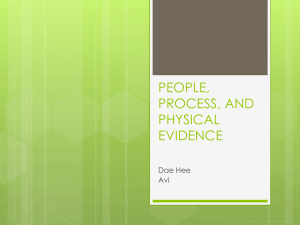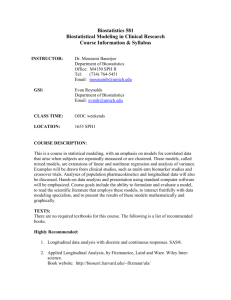Statistics – Math 230 - William Paterson University
advertisement
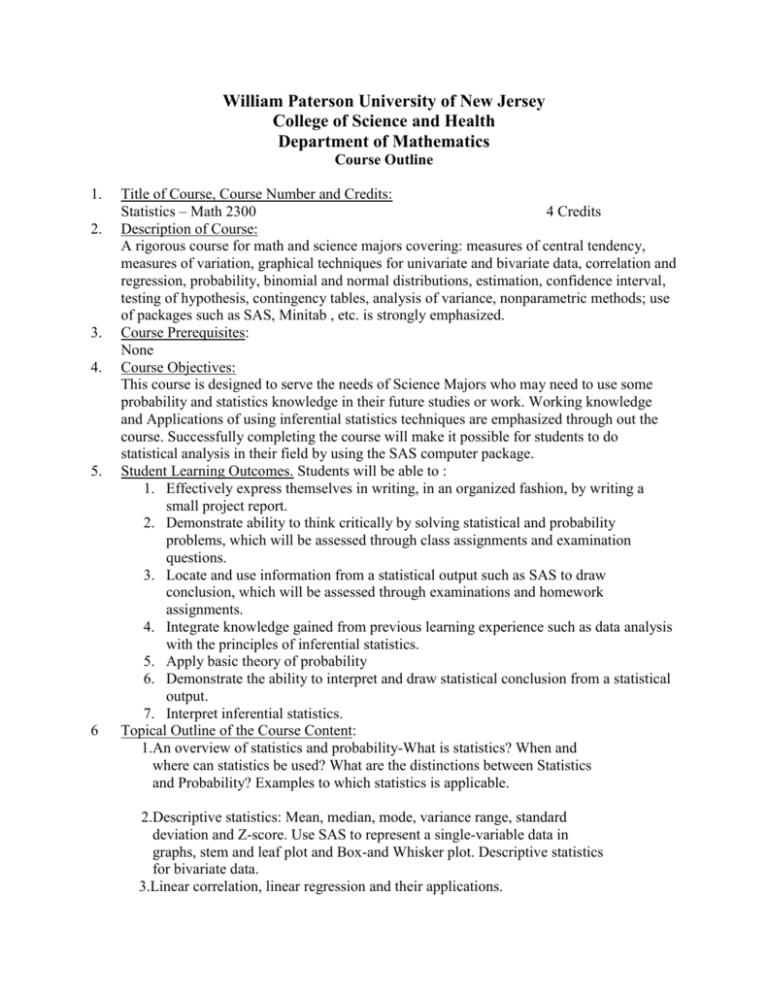
William Paterson University of New Jersey College of Science and Health Department of Mathematics Course Outline 1. 2. 3. 4. 5. 6 Title of Course, Course Number and Credits: Statistics – Math 2300 4 Credits Description of Course: A rigorous course for math and science majors covering: measures of central tendency, measures of variation, graphical techniques for univariate and bivariate data, correlation and regression, probability, binomial and normal distributions, estimation, confidence interval, testing of hypothesis, contingency tables, analysis of variance, nonparametric methods; use of packages such as SAS, Minitab , etc. is strongly emphasized. Course Prerequisites: None Course Objectives: This course is designed to serve the needs of Science Majors who may need to use some probability and statistics knowledge in their future studies or work. Working knowledge and Applications of using inferential statistics techniques are emphasized through out the course. Successfully completing the course will make it possible for students to do statistical analysis in their field by using the SAS computer package. Student Learning Outcomes. Students will be able to : 1. Effectively express themselves in writing, in an organized fashion, by writing a small project report. 2. Demonstrate ability to think critically by solving statistical and probability problems, which will be assessed through class assignments and examination questions. 3. Locate and use information from a statistical output such as SAS to draw conclusion, which will be assessed through examinations and homework assignments. 4. Integrate knowledge gained from previous learning experience such as data analysis with the principles of inferential statistics. 5. Apply basic theory of probability 6. Demonstrate the ability to interpret and draw statistical conclusion from a statistical output. 7. Interpret inferential statistics. Topical Outline of the Course Content: 1.An overview of statistics and probability-What is statistics? When and where can statistics be used? What are the distinctions between Statistics and Probability? Examples to which statistics is applicable. 2.Descriptive statistics: Mean, median, mode, variance range, standard deviation and Z-score. Use SAS to represent a single-variable data in graphs, stem and leaf plot and Box-and Whisker plot. Descriptive statistics for bivariate data. 3.Linear correlation, linear regression and their applications. Statistics – Math 2300 4.Introduction to probability. Sample space, conditional probability, and joint probability of events. Distribution function of a discrete and continuous random variable. 5.Binomial distribution, Normal distributions, Student t-distribution, Chisquare distribution. 6.Sampling distribution of the sample mean, Central limit theorem and its application 7.Point estimation of the population mean and proportion. 8.Construction of the confidence intervals for the population means. 9.Hypothesis testing which includes one sample, two samples and dependent sample. 10.Chi-square test for categorical data, goodness of fit and test for independence of two factors. 11.Analysis of Variance. 7. 8. 9. 10. 11. 12. 13. 14. Guidelines/Suggestions for Teaching Methods and Student Learning Activities: Lectures and classroom discussions. Home work assignments and Final Project Guidelines/Suggestions for Methods of Student Assessment (Student Learning Outcomes) Through quizzes, tests, and final examination. Suggested Reading, Texts and Objects of Study: Statistical Reasoning and Methods, by Richard A. Johnson and Kam-Wah Tsui, John Wiley and Son. Bibliography of Supportive Texts and Other Materials: Statistics-the exploration and analysis of data, by Devore and Peck, 3rd Ed. Duxbury Press. Understandable Statistics, by Charles Henry Brase and Corrinne Pellillo Brase, 6th Ed.Houghton Mifflin. Applied Statistics and the SAS Programming Language, by Cody and Smith, 3rd Ed. Prentice Hall. Preparer’s Name and Date: Fall 1982, Spring 1991 Original Department Approval Date: Fall 19882 Reviser’s Name and Date: Wooi K. Lim , Spring 2000 Prof. P. Chen - Fall 2004 Departmental Revision Approval Date: Page 2 of 2
